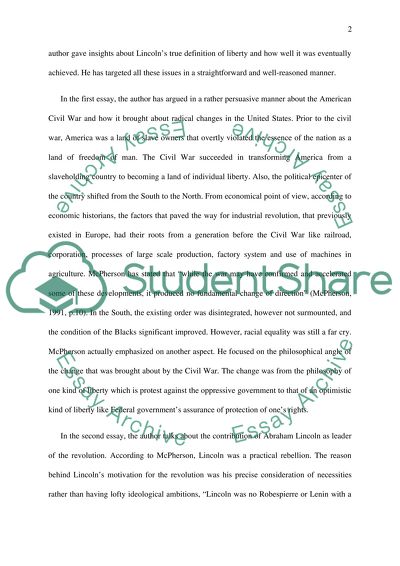Cite this document
(“McPherson, James M. Abraham Lincoln and the Second American Essay”, n.d.)
Retrieved from https://studentshare.org/history/1650619-mcpherson-james-m-abraham-lincoln-and-the-second-american-revolution-new-york-oxford-university-press-1991
Retrieved from https://studentshare.org/history/1650619-mcpherson-james-m-abraham-lincoln-and-the-second-american-revolution-new-york-oxford-university-press-1991
(McPherson, James M. Abraham Lincoln and the Second American Essay)
https://studentshare.org/history/1650619-mcpherson-james-m-abraham-lincoln-and-the-second-american-revolution-new-york-oxford-university-press-1991.
https://studentshare.org/history/1650619-mcpherson-james-m-abraham-lincoln-and-the-second-american-revolution-new-york-oxford-university-press-1991.
“McPherson, James M. Abraham Lincoln and the Second American Essay”, n.d. https://studentshare.org/history/1650619-mcpherson-james-m-abraham-lincoln-and-the-second-american-revolution-new-york-oxford-university-press-1991.


